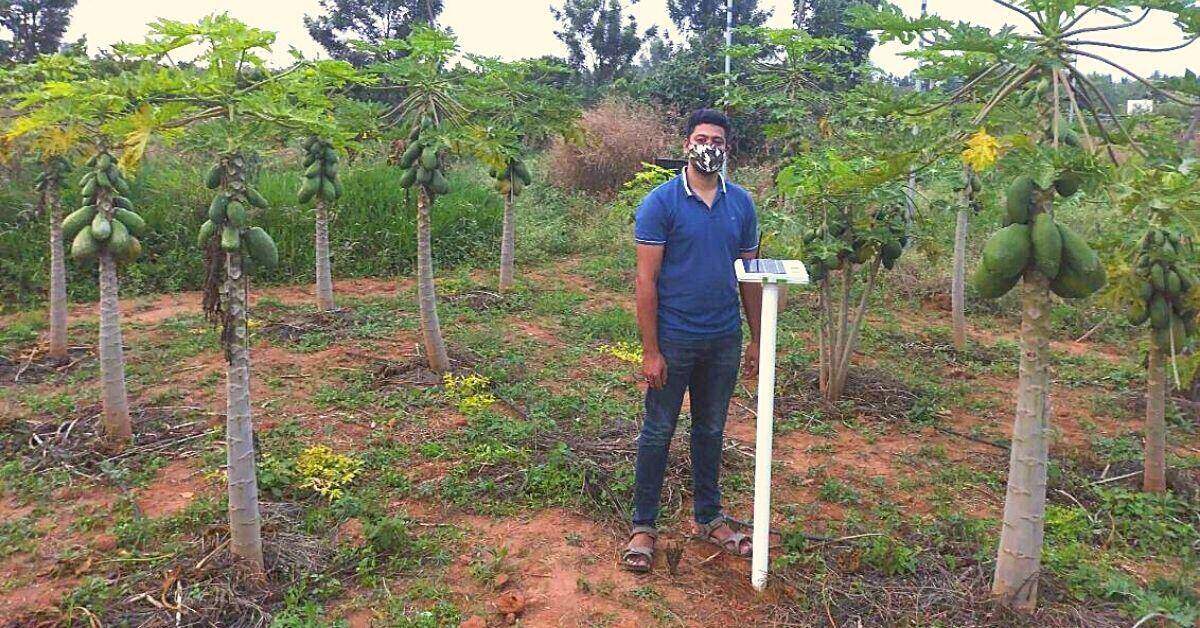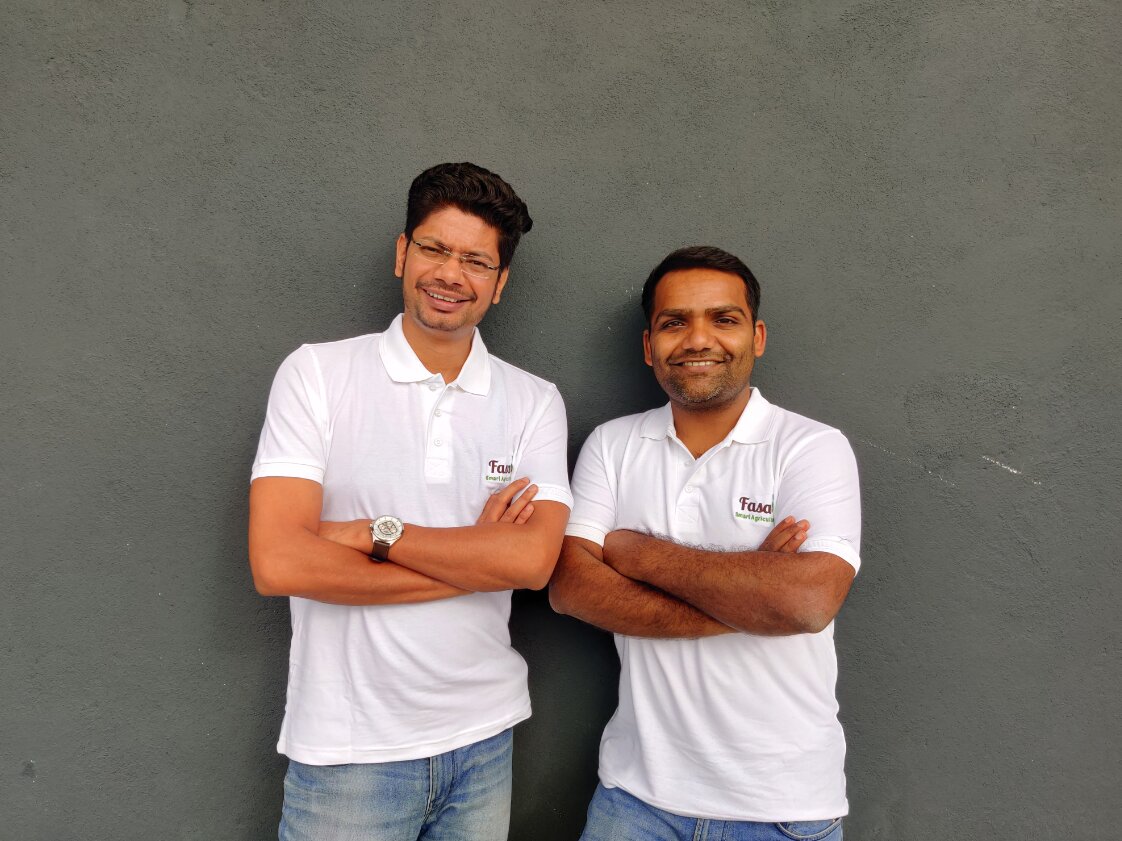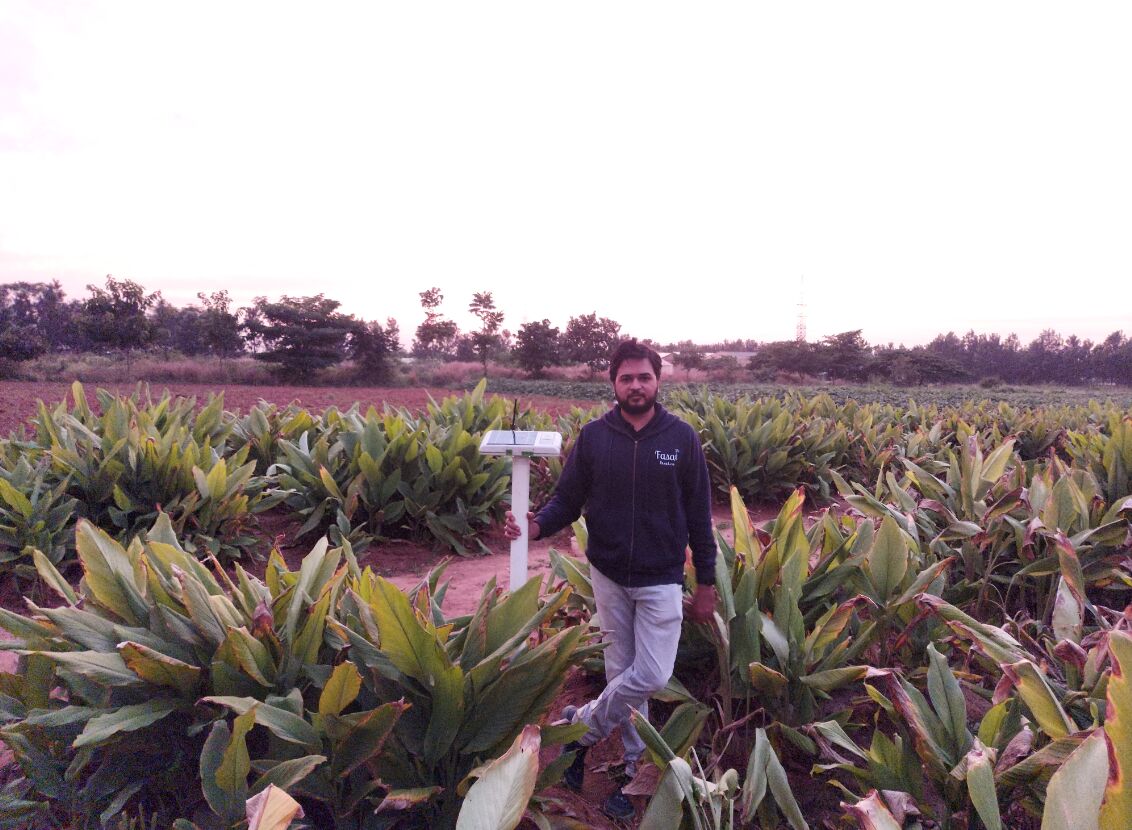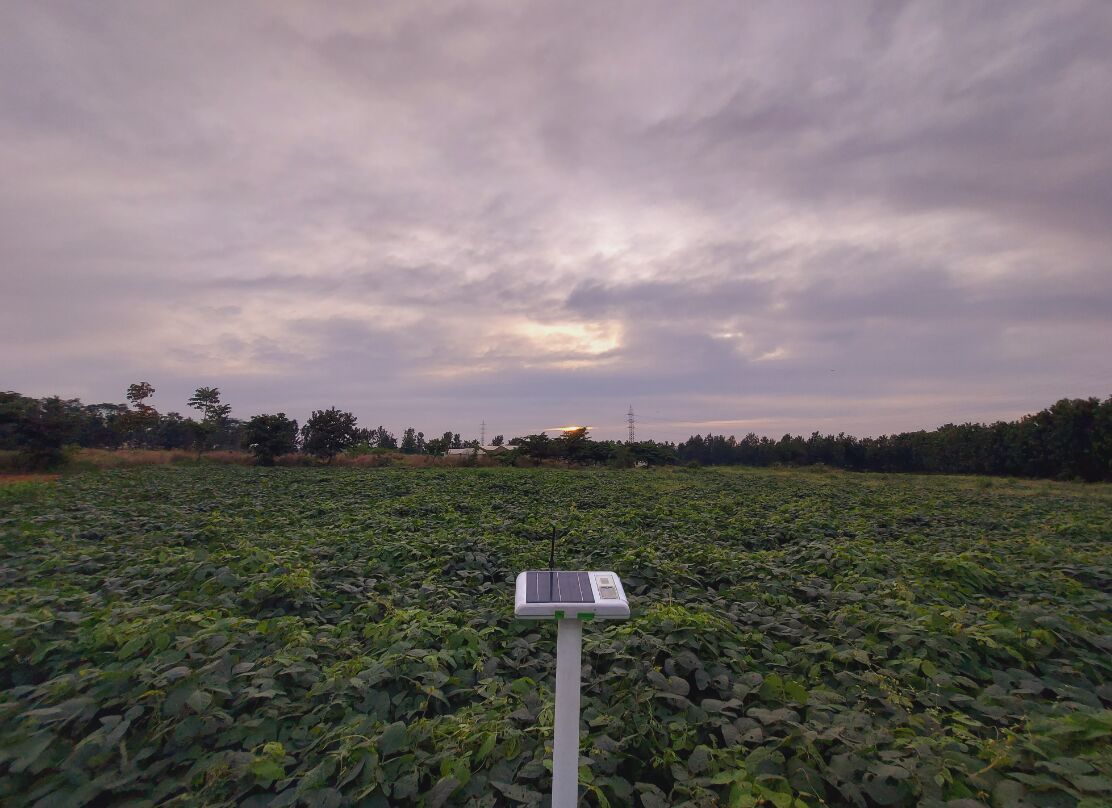Installing in 5 Mins, Bengaluru Firm’s Tech Helps Save 3 Billion Litres of Water
'Fasal Kranti', a made-in-India plug and play IoT system, is equipped with 12+ sensors to monitor rainfall, wind speed, leaf wetness and soil temperature, amongst others, on a farm.

Shailendra Tiwari, a production engineering graduate from Varanasi, and Ananda Verma, a computer science engineer from Azamgarh, come from families who for generations have tilled the fertile lands of eastern Uttar Pradesh.
After a brief stint in the corporate world, both friends came together in the last quarter of 2017 to establish Fasal, a Bengaluru-based precision farming startup which operates an IoT based AI-powered intelligence platform for horticulture crops.
Their technology captures real-time data from their ‘Made in India’ on-farm sensors to deliver farm-specific, crop-specific and crop-stage specific actionable recommendations to farmers via mobile phones in vernacular languages through the Fasal App.
Actionable intelligence includes precise disease management, pest management, irrigation, farm planning and farm finance management. It monitors your farm conditions (climate, soil, irrigation) from anywhere and anytime, as if you never left the farm.
What led them to establish Fasal was their granular understanding of the challenges that farmers face. “Agriculture in India has been plagued by various uncertainties that leads to over utilisation of natural resources, high input costs, low productivity and poor quality of produce. Most of our farmers over spray, over irrigate and over fertilise. Our vision is to perform technological innovations in crop care to bring predictability and profitability in agriculture and make agriculture sustainable,” says Ananda, speaking to The Better India.

Since 2018, Fasal claims to have assisted hundreds of farmers spread across 10,000 acres of farmland in largely four states — Chhattisgarh, Karnataka, Maharashtra and Madhya Pradesh. They help them reduce cultivation costs upto Rs 50,000 per acre, generate about 60% more produce per acre than the previous season and altogether save 3 billion litres of water across all farms where their sensors are deployed.
In late November 2020, the startup unveiled their fourth version of on-farm sensors called ‘Fasal Kranti’. The self-deployable and plug-and-play device takes less than 5 minutes to deploy at a farm. More importantly, it is equipped with over 12+ sensors to monitor macro-climatic factors such as rainfall, wind speed, wind direction, LUX, solar intensity, micro-climatic factors such as temperature, humidity, leaf wetness, etc, and below the soil parameters like soil temperature, soil water tension at multiple levels.
Fasal Kranti can also be integrated with any agriculture automation system to extend its capability into farm automation. Using the algorithms they’ve developed, Fasal Kranti helps in precisely managing irrigation based on specific crops at a specific stage, protecting them from the root and hence improving the quality of yield.
“Farmers can avail the benefits of precise disease and pest management to protect their crop and reduce harmful chemical usage. The minimal chemical residue brings better value, acceptance for their farm produce worldwide and savings upto 50% on spray cost. It helps farmers in upto 50% reduction in water usage for irrigation,” notes their press release.
“Before launching Fasal Kranti, we were using an older version of our hardware. Fasal Kranti is the fourth generation of our hardware. The challenges of the first three generations of hardware were that they required somebody to go to the farm and assemble it. This meant we needed physical presence for a farmer to start using our technology,” says Shailendra, co-founder of Fasal, in a conversation with The Better India.
With Fasal Kranti, there is no assembly required. It’s just a plug and play device. A farmer takes it out on the field, places it in the middle of the farm, scans a QR code and the system starts working. Development work for Fasal Kranti began about a year and a half ago.

“Thanks to Fasal Kranti, we can sit in Bangalore, but serve any farmer across India. This allows precision farming solutions to reach anybody in this country,” adds Shailendra.
“We collect a lot of data from the farm via this IoT device and other sources like satellite imagery. This data is collected, passed through algorithms that our teams continue to develop for understanding the plant’s precise water requirement and pest risk, amongst others, and convey this information to the farmer in very simple language,” says Ananda.
Essentially, agriculture is extremely local. There could be two adjacent farms of the same size, but each grows different crops or possesses different soil textures. “The idea is that we needed to understand each farm and thus an instrument on the ground to tell us what was going on each day there. This is where IoT comes into the picture,” he adds.
Before dwelling any further on the technology itself, it’s imperative to understand what this precision farming startup is all about. Watch Shailendra explain what precision farming means and how that translates into the services his startup offers farmers.
https://www.youtube.com/watch?v=JGdvOE0-uIY&feature=youtu.be
How do you use Fasal Kranti?
These devices are largely deployed in the middle of the farm since in a majority of cases disease or pests could start emerging from the centre of the farm. With a lifespan of four to five years, this device sends data via telecom cellular network using even 2G. Requirements, advisories and alerts are conveyed irrespective of whether the farmer has a smartphone or a simple feature phone.
“This device works based on a frequency we set ranging from 15 minutes to 2 hours. For this time span, the device will automatically turn on, collect all the data from these sensors, and check on the status of the network condition. If the network condition is good, the device will transmit all of that data into our cloud server. If the network for any reason is not good, it will save that data in the device itself. The next time it wakes up for a certain duration, it will send those data points alongside the ones collected at the time. Also, this device is solar powered, and even if there is no sunlight, it will continue working for three to four months. When the sun arises, it will charge the device automatically,” says Shailendra.
Once the data has been collected from the device, that data is sent to the cloud server via a telecom network. The magic starts once the data arrives in the cloud server. There are a myriad of algorithms that the 42-member Fasal team has developed.
Does the plant have enough water to consume from the soil? Is there enough water in the root zone for the plant to consume in the next 12 or 24 hours? There are a lot of inter-linked data points like solar intensity or soil type to also determine how much water a certain plant draws from the soil. “Measuring all these data points, we can tell a farmer that by 4 pm, for example, all the water in the soil is going to dry up and therefore needs to be irrigated,” he adds.
“We forecast when and how much it is going to rain. We also do very localised weather forecasts, where we are understanding rainfall, chances of rainfall, amount of rainfall, temperature and humidity, etc. The system checks whether there is a chance of rainfall. If so, how much? Is it enough for the plant’s water needs? That’s when the system instructs the farmer when and how much to irrigate a certain plant,” says Ananda.
These devices could even discover a pest issue or disease problem as well. In anticipation of the problem, the Fasal system advises on what should be done. It’s important to anticipate these events because the cost of a crop disease when it happens is 10 times more than the cost of ensuring it doesn’t even take root. Procuring components from different states, the final assembly and production of these devices happen in Bengaluru.

“As per our estimation, we have saved over 3 billion litres of water across all farms where Fasal is deployed. This is water for 150,000 people that farmers have saved. To further encourage farmers, we have started a Fasal Water Credit system. Our systems will record every hour if the level of water is less than a certain excessive limit or not. Every farmer who maintains water below this level for a certain number of hours in a month, Fasal will refund his entire monthly subscription that we charge for our advisory. Every time a farmer saves water, he makes money,” says Shailendra.
The subscription fee for farmers depends on the crop, but it’s anywhere between Rs 500 and Rs 750 per month. One such beneficiary of Fasal is Amol Rakibe, a grape farmer from Niphad taluka in Nashik district, Maharashtra, whose family had in the past struggled with rising costs.
“I have used the Fasal sensor for four things, namely pest, disease nutrition and irrigation management. There have been many benefits of using this technology, particularly in pest and disease management. I have been able to cut the amount of spraying pesticides and overall reduced costs in nutrition and irrigation management by about 50%. Specifically, in terms of diseases, Fasal has helped me in anticipating powdery mildew and downy mildew and reduced spraying by 50 and 60 per cent, respectively, which also makes for cleaner and more environmentally friendly produce,” says Amol.
(Edited by Yoshita Rao)
Like this story? Or have something to share? Write to us: [email protected], or connect with us on Facebook and Twitter.
If you found our stories insightful, informative, or even just enjoyable, we invite you to consider making a voluntary payment to support the work we do at The Better India. Your contribution helps us continue producing quality content that educates, inspires, and drives positive change.
Choose one of the payment options below for your contribution-
By paying for the stories you value, you directly contribute to sustaining our efforts focused on making a difference in the world. Together, let’s ensure that impactful stories continue to be told and shared, enriching lives and communities alike.
Thank you for your support. Here are some frequently asked questions you might find helpful to know why you are contributing?


This story made me
-
97
-
121
-
89
-
167











